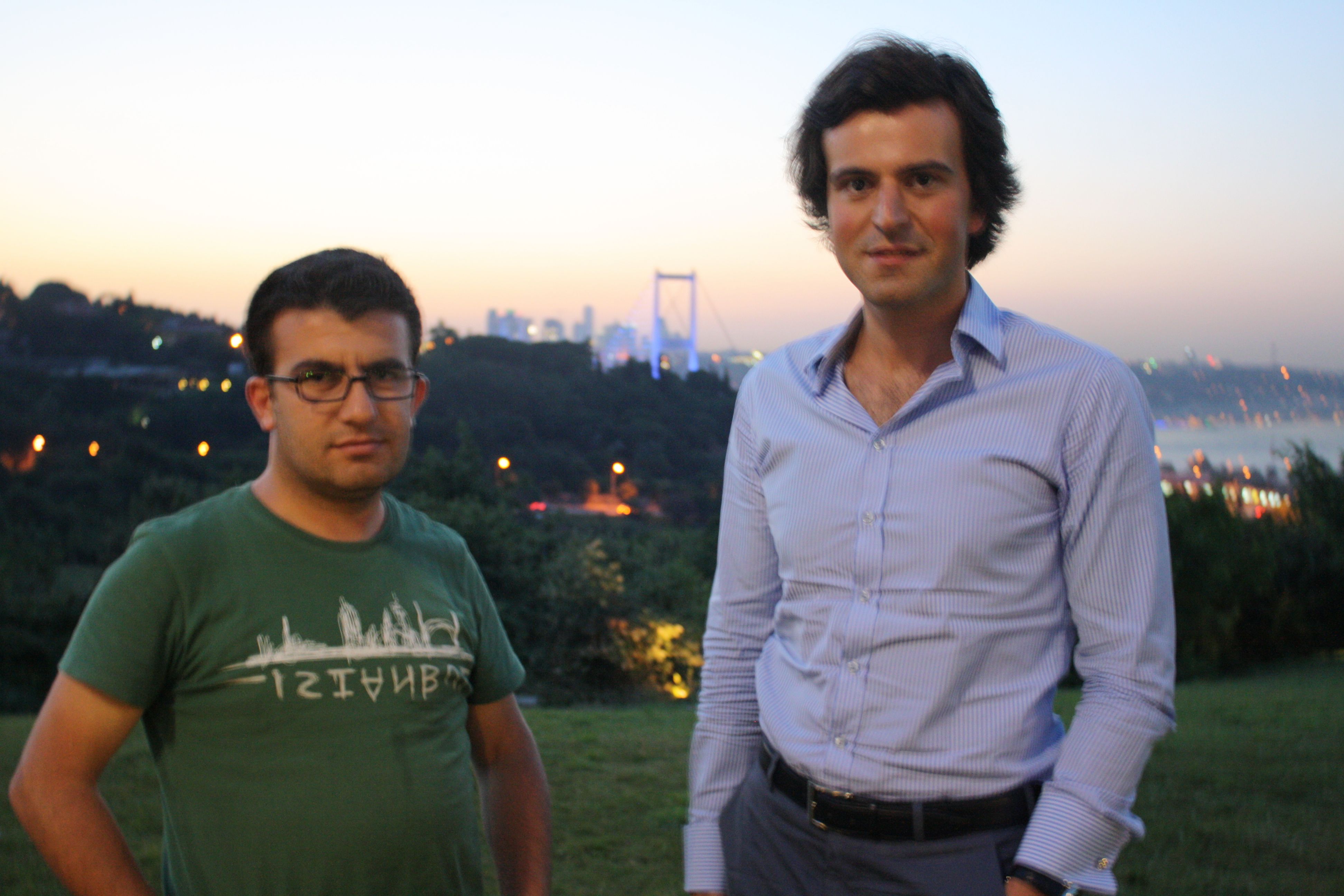When the Istanbul Bar was handing out awards not along ago, it received a large flowery wreath from Carl Schmitt and the Nuremberg, Germany, Bar Association.
The law group gave the unexpected wreath prominent notice.
Much later they learned to their embarrassment that the wreath really came from Fatih Demirci and his friends.
They were using Schmitt, a Nazi legal scholar, to mock the organization’s award in the name of a long ago Turkish leader, whose beliefs Demirci and his friends consider fascistic.
Demerit recalls the event with gusto because it exemplifies what he considers a winning tactic of his unusual Turkish group – the Young Civilians.
They rely heavily on humor, and especially sarcasm, a rarity in a place where people sometimes wonder why they don’t smile more.
And they were poking fun at a highly held taboo, the kind of gesture that once could have gotten them into deep trouble with authorities.
But these are different days in Turkey and taboo smashing is not such a dangerous sport. Most taboo smashing is not likely to bring a handful of problems down upon you. Caution, however, is wise.
The arrival of the Young Civilians is a metaphor for the kind of change that Turkey has been undergoing as it has slipped from one identity to another.
The best way to understand the change is to look at Turkey before and after the current ruling party – the Justice and Development Party (AKP in Turkish) ¬– was swept into power in 2002.
Before, Turkey was largely led by people who followed the path laid down nearly nine decades ago by the founder of modern Turkey, Mustafa Kemal Ataturk.
This was a Turkey where the military were considered the nation’s guardians, which was why they overturned several governments not to their liking. And it was a place that considered itself Muslim, yet religion was held at an arm’s length and was not a driving force in state policies.
Since the AKP came into power, it has largely defanged the military and put a large number of its former leaders on trial. It has embraced Islam far more closely, pumping up support for the Religious Ministry and announcing plans to build a giant mosque on a tall hillside looking down over Istanbul.
To the AKP’s foes, the party is pulling Turkey towards a more conservative Islam and abandoning its legacy. To the AKP and its many supporters, the party is answering the wishes of more religious Turks, most of them outside of Istanbul, who were cut out of the economy and the nation’s image making for decades.
Taking on the military’s power and prestige has been a driving force for the AKP. And it has been the same for the Young Civilians since they first garnered the public’s attention in 2003.
They complained about the annual May 19 Youth and Sports Day at a press conference. This is the day when youth across Turkey march, put on sports displays and solemnly declare their loyalty to the state.
It marks the time when Ataturk fled foreign-occupied Istanbul to begin to lead his nation’s resistance. This is about as sacred as national symbols get.
But Demirci says that Turkish youths had grown tired of the Stalinist-type event. It seemed to have little to do with youth and more with saluting the military. “It was a very authoritarian way of thinking.”
“We are against the military’s involvement in daily life,” Demirci explains. “It’s their job to defend the country and nothing else.”
One newspaper the next day quoted “young officers” who were upset that such a protest had taken place. In response, Demirci’s group had its name. It said that Young Civilians were also upset. Soon after the group took on its anti-military, anti-establishment symbol, a pink sneaker.
And as it has kept up its public presence and pranks, rumors have grown about its so-called real identity.
“Those who see the world in conspiracy terms say the CIA, the USSR, Israel and the Gulen Movement (an influential Islamist effort in Turkey) all support us,” Demirci says.
Then, he adds with a smile, “it would be weird because none them would ever get together.”
The group has reached out to similar youth movements in the Arab world. So, too, it has sought to develop links with like-minded efforts in Asia. It has also held public meetings with Syrian opposition activists in Istanbul in order to help spread the story of their efforts.
With the military’s power much reduced under the AKP, the group has expanded its interests. But as usual, its approach is unusual. And so, Demirci talks, for example, about being environmental activists who “drive a car and use a telephone.”
It has also created the Animal Party but has yet to get anyone elected. The party’s theme is to protect animal rights.
So what happens as the Young Civilians age?
Demirci, a sharply dressed 28-year-old engineer, and one of the group’s founders over a decade ago, doesn’t hesitate for a minute.
“We may get older, but we will keep our youthful ideas.”
